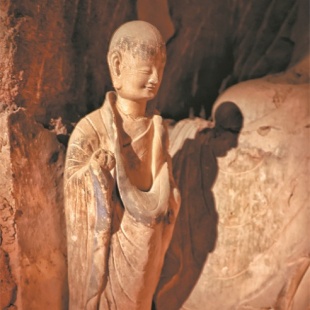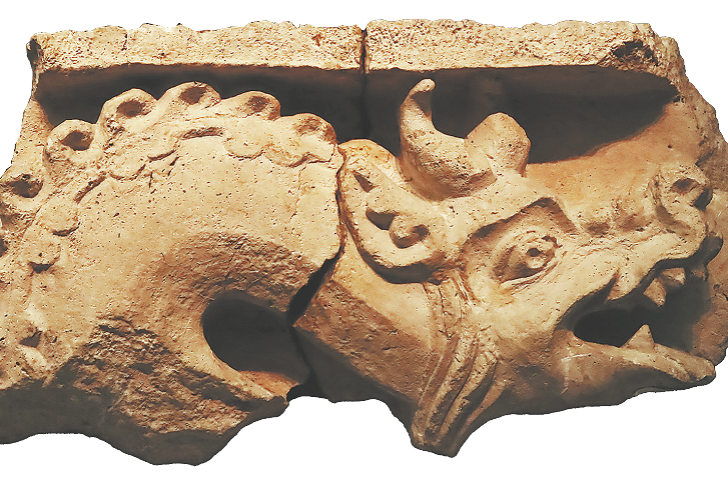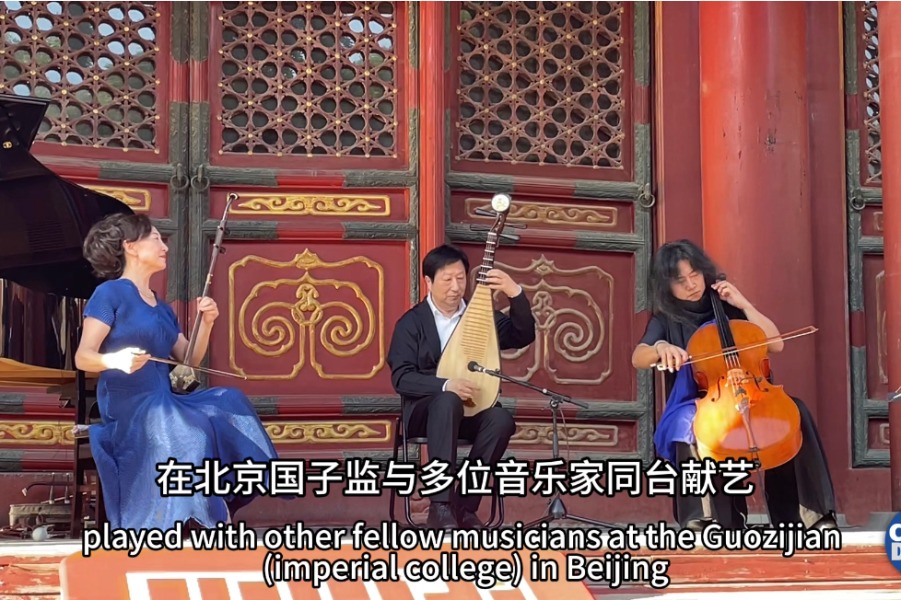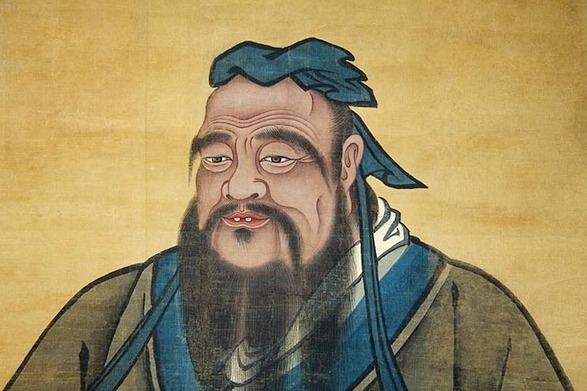Protecting mountains of relics

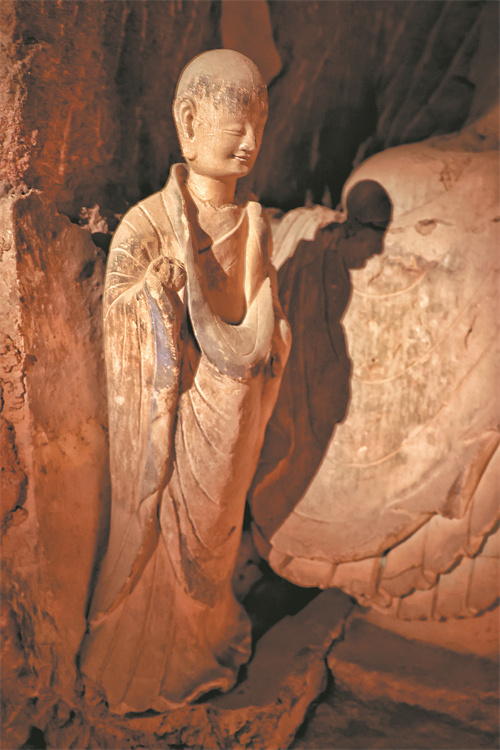
Moreover, the site is rich in biodiversity due to its location in a forest zone, where animal and insect activities have a major influence on the cultural remains.
For example, complex-toothed flying squirrels often defecate on the precious relics, causing damage to the stone statues and murals, and insects crawl on murals, directly touching the pigment layers and causing them to flake.
"The squirrels have a habit of excreting in a fixed location, which means they wander around the forest to find food, but go back to a chosen place to defecate. After a while, the place darkens and deteriorates," says Xu.
Therefore, they try to reduce animal and insect visits to the relics by using harmless equipment to deter them and prevent such damage.
"But such influences can never be eliminated because we cannot interfere with the animals' activities too much. We must keep the ecological balance," says Hu.
Since 2020, they have also collaborated with scholars from Peking University to discover methods to save the already blackened areas. Xu says that after multiple experiments, they developed a solution using artificial saliva as the major component, which can decompose hazardous substances in excrement. This is the first attempt nationwide to deal with damage of this kind.
"Since statues and murals are fragile, we have conducted experiments with the solution on the grottoes' trestle roads and cliffside to see if it's reliable and effective enough. Then we will understand if it's safe to use on the statues and murals," Xu says.
In a 2017 survey on what leaves the deepest impression on visitors to Maijishan, more than one-fourth mentioned the trestle roads.
Maijishan's caves and niches are carved into the sheer cliffs, 20 to over 80 meters above ground. The hanging trestle roads crisscross the cliff, linking the caves and forming as many as 12 levels.
"For many other cave temples, trestle roads may be nothing but an accessory for tourism, but for Maijishan's steep terrain, the roads are lifelines," says Yue.


